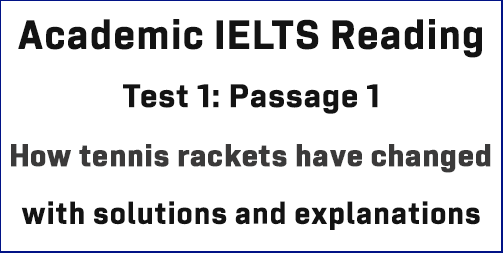IELTS General Training Reading: Cambridge 11 Test 1 Section 1; Is Your Child at School Today? & HOLIDAY APARTMENTS TO LET; with best solutions and best explanations
This General Training IELTS Reading post deals with a solution package for IELTS Cambridge 11 Reading Test 1 Section 1 that has two texts entitled ‘Is Your Child at School Today?’ and ‘HOLIDAY APARTMENTS TO LET’. This is an aimed post for candidates who have major problems searching for and understanding Reading Answers. This post can guide you the best to understand every Reading answer easily and without much difficulty. Finding IELTS Reading answers is a step-by-step process, and I can confidently say that this post will help you in this respect.
IELTS Cambridge 11 Test 1: GT Reading Module
Section 1: Questions 1-14
Question 1-5
The headline of the passage: Is Your Child at School Today?
Questions 1-5 (TRUE/FALSE/NOT GIVEN):
In this type of question, candidates are asked to find out whether:
The statement in the question matches with the account in the text- TRUE
The statement in the question contradicts the account in the text- FALSE
The statement in the question has no clear connection with the account in the text- NOT GIVEN
[For this type of question, you can divide each statement into three independent pieces and make your way through with the answer.]
Question 1: Children must go to the school where they are registered.
Keywords for this question: children must, go to … .school, registered,
The answer is in the first section named ‘Introduction’ in lines 3-4. The writer says here, “The law says that parents must ensure that their child regularly attends the school where he/she is registered.”
The lines clearly indicate that children must go to the school where they are registered and their parents must ensure it.
So, the answer is: TRUE
Question 2: All arrivals after the register has closed are recorded as ‘unauthorised’ absences.
Keywords for this question: all arrivals, after, register, closed, recorded, ‘unauthorised’ absences,
The answer can be found in the ‘What you can do to help’ section in bullet point no.1. Here, in lines 2-4 the writer says, “ .. . . If your child arrives after the register has closed without a good reason, this will be recorded as an ‘unauthorised’ absence for that session.”
Here, without a good reason means if the child can show a good reason for late arrival, this will not count as ‘unauthorised’ absences.
So, the answer is: FALSE
Question 3: If your child is absent from school, you must send the school a letter to explain why.
Keywords for this question: if, child, absent, must send, letter, explain why,
In the ‘What you can do to help’ section in bullet point no.2, the author says,
“ • If your child has to miss school it is vital that you let the school know why, preferably on the first morning of absence. (Your child’s school will have an attendance policy explaining how this should be done.)”
However, we do not find any mention of ‘a letter’ here. This information is not given here.
So, the answer is: NOT GIVEN
Question 4: Staff who think a child is having difficulties at school will contact the parents.
Keywords for this question: staff, think, child, having difficulties, will contact, parents,
In the ‘What you can do to help’ section in bullet point no.3, the author says,
“ • If you know or think that your child is having difficulties attending the school you should contact the school. It is better to do this sooner rather than later, as most problems can be dealt with very quickly.”
However, we do not find any mention of ‘staff … .. will contact the parents’ here. This information is not given here.
So, the answer is: NOT GIVEN
Question 5: Schools will contact other authorities about children who take frequent unauthorised absences.
Keywords for this question: school will contact, other authorities, about children, take, frequent absences,
Have a look at the section named ‘Authorised and Unauthorised Absence’. The author says here, “If your child is absent and the school either does not receive an explanation from you, or considers the explanation unsatisfactory, it will record your child’s absence as ‘unauthorised’, that is, as truancy.”
This means the school authority will record a child’s absence as ‘unauthorised’ if the child is absent from school and the explanation is not given by the guardians or the explanation given by guardians is unsatisfactory.
However, we do not find any mention of ‘school will other authorities .. . ’ here. This information is not given here.
So, the answer is: NOT GIVEN
Questions 6-14:
The headline of the passage: HOLIDAY APARTMENTS TO LET
Identifying information:
[This question asks you to find information from the passage and write the number of the paragraph (A, B, C or D … ..) in the answer sheet. Now, if the question is given in the very first part of the question set, I’d request you not to answer them. It’s mainly because this question will not follow any sequence, and so it will surely kill your time. Rather, you should answer all the other questions first. And just like List of Headings, only read the first two lines or last two lines of the expected paragraph initially. If you find the answers, you need not read the middle part. If you don’t find answers yet, you can skim the middle part of the paragraph. Keywords will be a useful matter here.]
Question 6: It overlooks a golf course.
Keywords for this question: overlooks, golf course,
We can find the answer in section F. Here, in line no. 3, the writer states, “.. . .. . .. with attractive views of the golf course.”
So, the answer is: F
Question 7: It has its own parking space.
Keywords for this question: has, own, parking space,
In section B of the text, the author writes in line no. 2, “ . .. . Private parking in front of the building.”
Here, private = own,
So, the answer is: B
Question 8: It is in the centre of a town.
Keywords for this question: in the centre, town,
Take a look at section G as the writer says in the first line, “Two-bedroom apartment in central location in the busy street with shops, restaurants etc.”
Here, central location = centre of a town,
So, the answer is: G
Question 9: The sea can be seen from it.
Keywords for this question: the sea, can be seen,
At the very beginning of section A, we find this information, “One-bedroom apartment with uninterrupted sea views.”
Here, sea views = the sea can be seen,
So, the answer is: A
Question 10: There is a swimming pool for residents of the apartment complex.
Keywords for this question: swimming pool, residents, apartment complex,
In section D, the author says in lines 1-2, “Two-bedroom apartment in a complex with its own pool and beautiful views of the national park.”
Here, a complex with its own pool = a swimming pool for residents of the apartment complex,
So, the answer is: D
Question 11: It is in a new apartment complex.
Keywords for this question: new, apartment complex,
Take a look at section B lines 1-2, “.. .. Spacious one-bedroom apartment in a complex that has only just opened, five minutes’ walk from the sea…. .”
Here, has only just opened = new,
So, the answer is: B
Question 12: It is part of an apartment complex with its own supermarket.
Keywords for this question: part of, apartment complex, with, own supermarket,
In section A line no. says, “. . .. . This is a small first-floor apartment in a well-established apartment complex containing a range of leisure facilities and a supermarket for residents.”
Here, in a well-established apartment complex = part of an apartment complex,
So the answer is: A
Question 13: It has a private outdoor area where you can sit.
Keywords for this question: private outdoor area, can sit,
In section C, there is a line that says, “. . .. .large terrace with uninterrupted views of the river and mountains. A truly peaceful location in a picturesque village.”
Here, large terrace = large private outdoor area,
So the answer is: C
Question 14: The owners will organise parking on request.
Keywords for this question: owners, will organise, parking, on request,
In section F, it is mentioned in the last line, “ . .. Garage available by arrangement with the owners.”
Here, garage = parking, by arrangements with the owners = the owners will organise . .. .on request,
So the answer is: F
Click here for solutions to Cambridge 11 Test 1 GT Reading Section 2
Click here for solutions to Cambridge 11 Test 1 GT Reading Section 3




it nice Explantation with ans
Thank you.
Would you able to subscribe to my YouTube Channel as well and bring some subscribers too? http://www.youtube.com/c/IELTSDeal